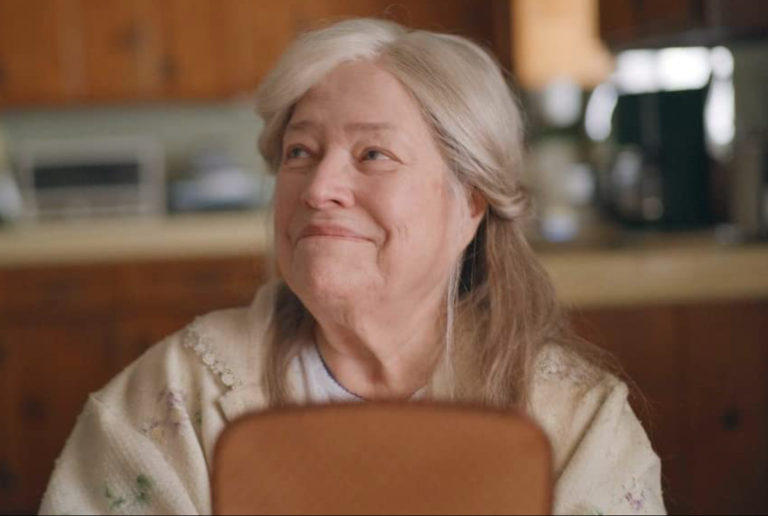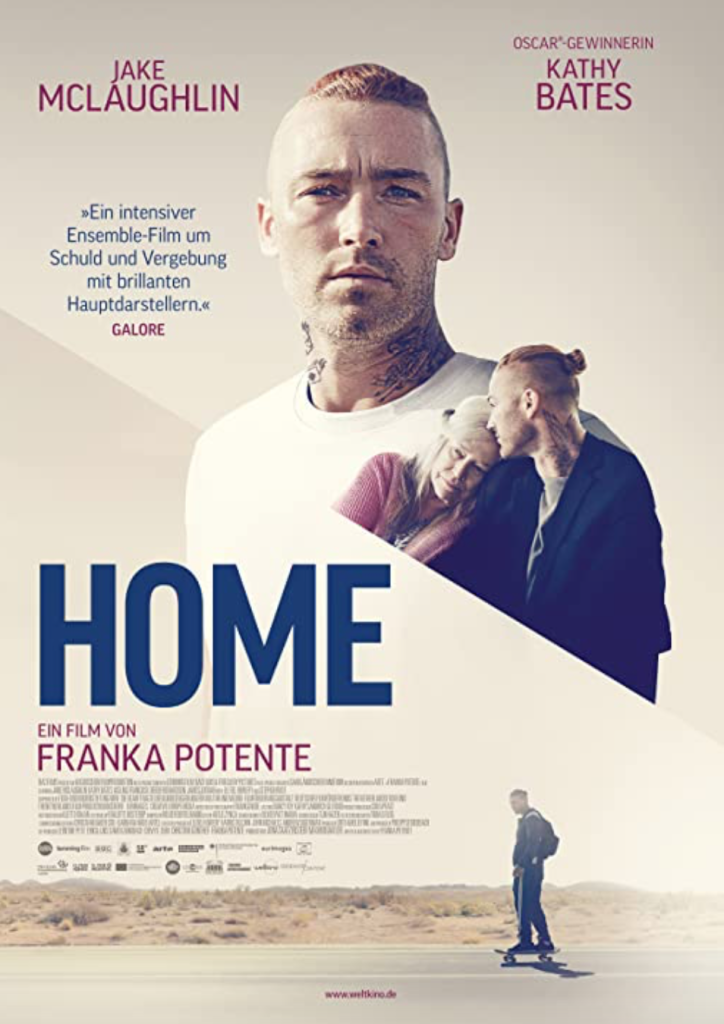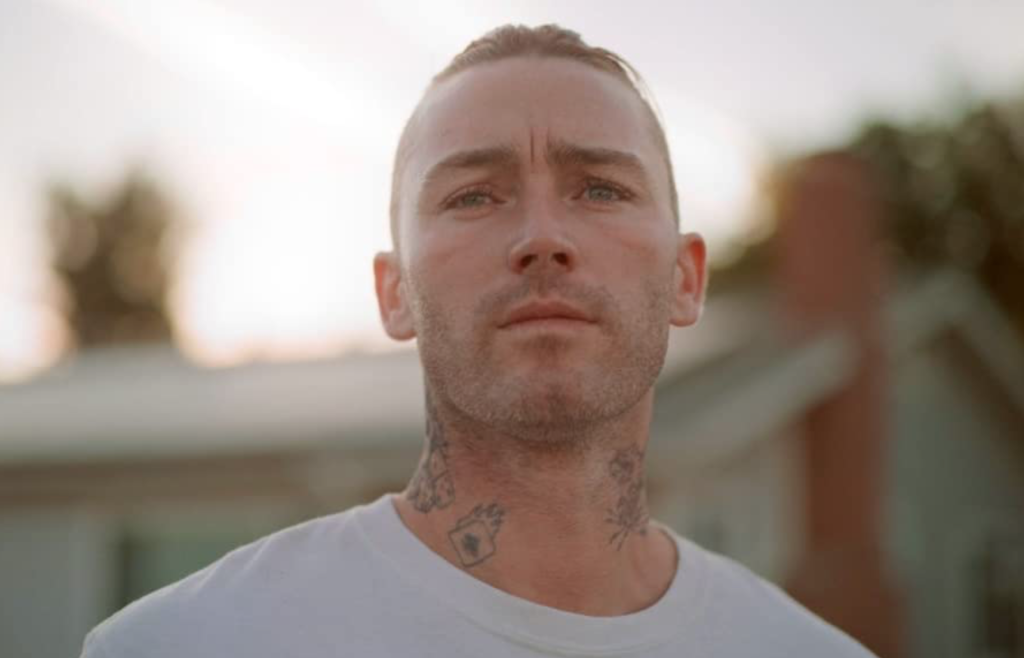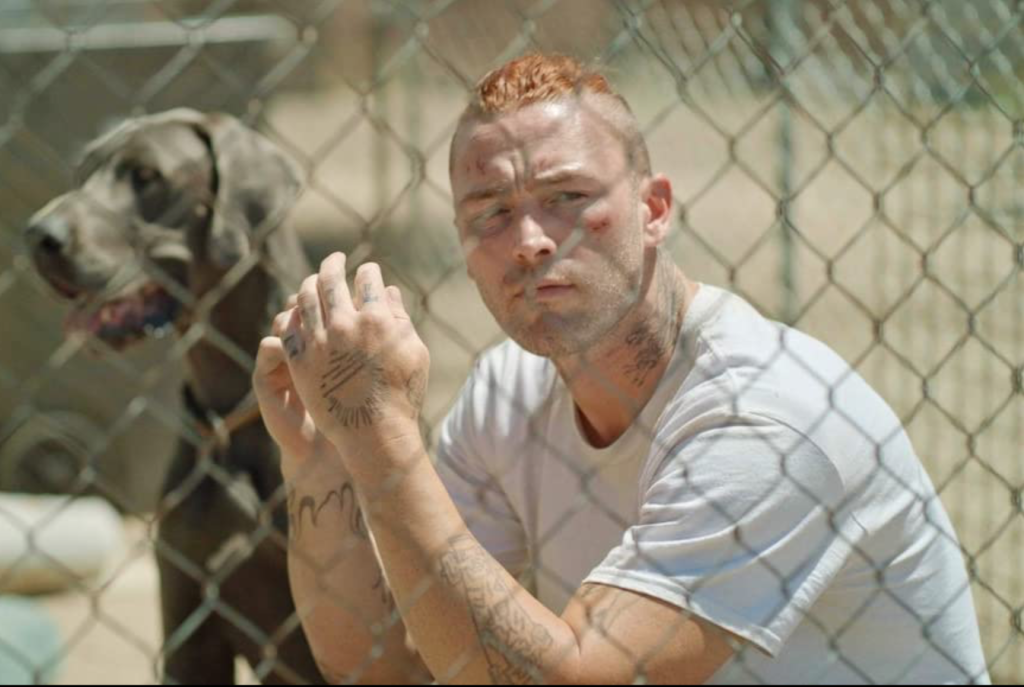
Synopsis : Marvin Hacks (40) is skateboarding home after more than 17 years in prison in the same Adidas tracksuit he was wearing when he was arrested as a teenager. He quickly finds out that, even after two decades, his small hometown has not forgotten the atrocity he committed, but Marvin is prepared to accept the repercussions of his past, whatever the cost…

An Exclusive Interview with Actress Kathy Bates
Q : I heard that you played a guitar before, but your first feature film was working with director Milos Forman, when did you decide to become an actor, and how did you get cast in that film?
Kathy Bates : I always wanted to do acting from when I was very young. As far as I can remember, even from the first grade, high School, and going to college for it. And then move to New York, I just fell right into it. Actually, my friends and I, we had several of us sharing an apartment in New York, and one of our roommates went down to the kitchen and my roommate was cooking dinner for John Guare and Milos Forman. They were working on the script, Milos had been given a bad deal with another company. And so as a result, they didn’t have any money. They had to go to a different company. So they were working on script and she was cooking dinner and they asked her if she knew any people that played their guitar and wrote their own songs. And at the time that’s what I did. And so she gave them my name and I went down and I played my song for Milos. And I think we got paid $5 a day, if it’s Today, the Screen Actors Guild, I’m sure they were furious. But all of those girls that were jammed in that room get paid $5 a day. So that’s how I fell into it.
Q : I heard that Dustin Hoffman embraced your performance in early stage of your career, what did you learn from him and what made you become a movie actor after that?
Kathy Bates : I liked Dustin very much, I had met him in New York through Warren Beatty who had come to see us in a play. I was working off Broadway and Warren introduced me to Dustin. And I like Dustin because he’s an actor’s actor. And I remember when I was out here in Los Angeles and he took me by the hand, the whole sound stage was empty, except for a camera was there and he said, “That’s the camera.” And he really took pleasure in introducing me to every filmmaking, he’s very intuitive and I was very nervous. He was different from the way I felt on Milos. Because this was a very big movie and it was Dustin, it was Gary Busey and you know, I just felt terrified. But Dustin kept trying to make me feel comfortable and included me that really helped. You’re right, Nobu. I guess the first time I felt like I was a movie actor. Because I was in a big film with actors that were well known.
Q : This was the first directorial feature for Franka Potente, but she is an international actress that have been working with different directors and films. Someone who understands acting, was that part of attraction why you decide to be in this film?
Kathy Bates : I knew she was in in the film, “Blow”, right? I saw her performance years ago, and I’d seen “Run Lora Run”, she wasn’t really on my radar as an actress, per se. So when she came to the house and we met and read the script. I responded to her more as a person, as her energy, her vibe, but she wasn’t nuts. She was very focused on the project and the characters. And I liked her and I think that’s what happens when you get together for films, you respond to the script and then you meet the people behind it. And you think, I don’t know these people, I don’t know if I want to spend time with them. And often it was just the awkward, but this just the opposite with Franka.

Q : This character Bernadette has a stage 4 cancer, and you also had a breast cancer in a real life, does that help you in some way to prepare this role? Take me through your preparation process?
Kathy Bates : Because I had a breast cancer and ovarian cancer also, I didn’t have to prepare, you know what I mean? That was a part of the character that I didn’t have to think about… but with one exception, I remember when I had ovarian cancer in 2003, there were a lot of sleepless nights, they say, “never to do this,” but I did it anyway where you would look online, and you read a lot of stuff about cancer, and you make up all these odds in your head without having any medical treatment at all. But you’re into kind of a bargaining phase. So that I think was part of the thing that, they’ve really did make itself known, except I’m trying to say it in the right way and the rest of it. I think Bernadette hopes that she’s going to die before her son comes home. So it’s a woman who’s given up. In fact, in a way she’s in prison as well, while her son has been in prison, because she’s been shunned by the community, the phone doesn’t ring, it was her best friend that he kicked to death. So I think she’s had a very hard isolated life, and she does not know and will never know the answer as to why he did it. And I think that’s one of the good parts about the film is that, you don’t know where it’s not tied up and because it’s senseless, it’s a senseless crime.
Q : In this film, an ex-convict came back home after serving the sentence, did you do any research parents or single mother that has son who was the ex-convict or you mostly follow what was written in the script?
Kathy Bates : Yes, I did a lot of research about that, and I found a lot of different examples where the families go from one extreme to the other, that they embrace their child, no matter what he’s done or her, they are going to be with them. They’re going to see them through it. Others deny it. Others had a PTSD afterwards. Their phone stops ringing. They are shunned by the society. For example, mother of Dylan Klebold, who was one of the shooters in Columbine. It took her years to come out and talk about what her son had gone through.
And even recently with the Gabby Petito case and how Brian Laundrie’s parents were vilified in the press, because they wouldn’t talk to the press and their lawyers had said, “Don’t talk.” And so immediately people thought they’re hiding something. They knew this, they knew that making all these assumptions and who knows what the real truth is. One of the parents drank themselves to death. The parents are always blind, they didn’t raise the child right. And they’re almost looked at as an accomplice in some way. And they’re rarely focused on at all, except in the situation to be vilified. And so that’s what was interesting to me and also tragic that these people have to wake up every day, living with the fact that my child had this horrible thing, And what did I do? The guilt…whether it’s a fair or not, the way that they feel that must’ve done something wrong, I could have done something different.Why did they do this? And you never understand why?
Because it’s senseless, you can’t make sense to a crime like that. And that’s what I think is so good about the film is that, it doesn’t spell it out. It’s the actual living with it. And one of the scenes that I felt the most important scene was when he goes to her exercise class and he’s in the middle of a circle of people who are pushing him back and forth. You can trust us or we’re pushing you away. I mean any number of interpretation to set you as an audience member watching this can feel, those trust exercises I thought was very poignant.
Q : There was the memorable and emotional sequence at the church towards end of the film, the scene with you and Jake McLaughlin, how did you work with Jake to create that wonderful scene?
Kathy Bate : Oh, my gosh, Nobu. When I was sitting next to him doing that, and I’m still getting chills now, sitting here for real. I remember holding onto his hand and I didn’t know what was going to happen. Before he did it, we were sitting in the perch together and he just leaned over and I leaned against him, and we didn’t say anything. And he got up, and then he delivered that speech, took me maybe half an hour to recover from that.
I felt so privileged to be there, and to feel his emotion, his expression, the way he did it, everything. I was just like, Wow! That was such an incredible experience. What a privilege to be there next to him and just his energy just filled that whole space. It was so wonderful. I’m glad you brought that up.

Q : Yeah, I love that sequences. What was Franka’s direction that stood out for you which is different from male or a regular female director?
Kathy Bates: I remember the very first scene when they’re playing slap Jack with cards. And I said, why this game, because we’re actually touching each other..and she said, “Yes. I know.” Because she wanted us to be thrust into that intimacy that unexpected thing. So it doesn’t really answer your question about her being an actress per se. But in a way that it does, because she’s setting up the scene, so that it forces us activity that is going to affect us both as mother and son coming back together, almost like what we’re slapping each other, aren’t we? So that was a really interesting direction for me. And like I said, I never really related to her as an actress, it was more as a director because she was in there with us. It was such a tiny space. And so it felt very intimate and she always had a good energy. She was never worried about anything. If she was, she didn’t share that with us at all with any negative energy.
Q : You have been constantly working in films, TVs and theaters. But are there any moments in your life that you had a tough time finding a role, particularly after you won your Oscar for “Misery”?
Kathy Bates : Yeah, I don’t know if you recall the actor Ned Beatty, I lived near him at the time and I had gone to a party at his house and he literally put his hand on my head and he went, “Heal!.” Because you know, after he had won the Academy Award. Basically, he was saying, “Take the curse off, not working,” because he experienced it after he won an Oscar. So when he saw me at this party and he said, “I hope this curse doesn’t affect you. Like it affected me,” but it did a little bit. But I got “Fried Green Tomatoes” pretty soon after that. It was hard because people want you to play the same kind of roles.
Q : There’s toxic masculinity on character Russel when he talked to his sister Delta, ever since the #MeToo movement what was changed in the Hollywood industry, what do you think still need to rectify?
Kathy Bates : Back in 70’s, we were absolutely rock, we’re crazy, anything goes, you know, we are very foul language, the dirty jokes, flirting, all of that stuff back in the 70’s. And now with #MeToo, it came along right around the pandemic or a little before. So I haven’t noticed any changes on set. Because we’re all staying away from each other anyway. I experienced it a little bit when I was younger, going in and getting hit on and rigorously at the audition or whatever, not knowing how to handle it.
But it’s very different now. I mean, even in the last decade, when I went to work with Warner brothers, you have to go to sexual harassment, everybody, the crew, everybody. And it’s kind of silly on the outset, but specifically tells you, you can’t say this and this. And then if somebody assaults you, you have to do whatever, but it can get crazy. So that kind of sexual harassment, it’s a put down, isn’t it. Let’s do something inappropriate to somebody can be humiliating. And so I’m glad that that doesn’t happen on set anymore.


